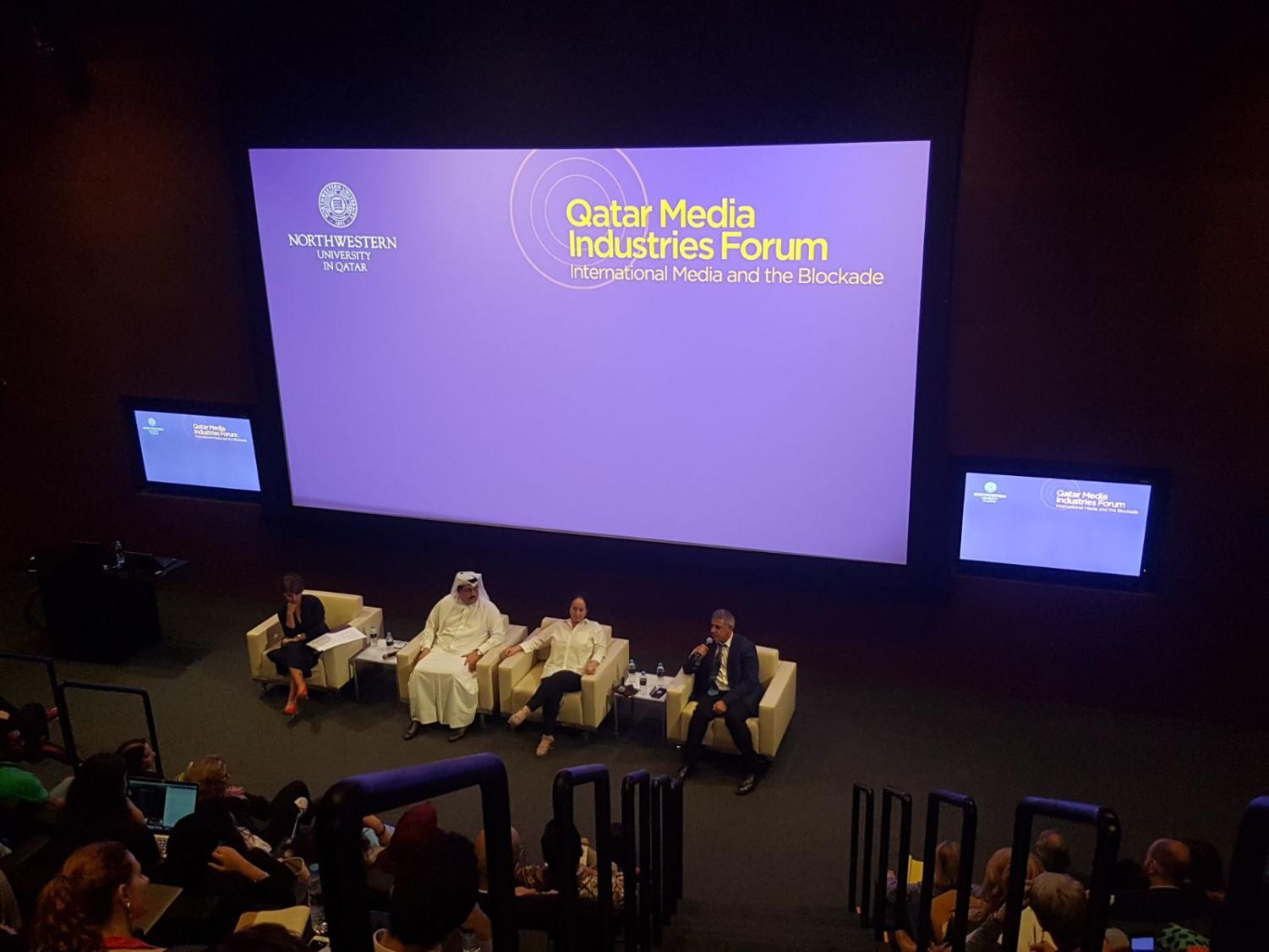Qatar’s blockade in the lens of international media

The Gulf blockade against Qatar has been an increasingly difficult issue to report on, according to Borzou Daragahi, the Middle East correspondent for BuzzFeed News, who spoke as part of a panel discussing international media coverage of the blockade at Northwestern University in Qatar on Oct. 23.
The moderator of the panel, NU-Q’s Associate Professor Banu Akdenizli, began the discussion by asking the panelists about how the rest of the world views the Gulf crisis.
According to Vivienne Walt, foreign correspondent for Time magazine and roving correspondent for Fortune, the international community, particularly Americans, are struggling to understand the logic behind the crisis.
“It has been difficult for people who don’t understand the region, the schism of ideals, and the national priorities,” she said. “This is why we have to try and explain it to them in a way they understand.”
Faisal Abdulhameed al-Mudahka, editor-in-chief of the Gulf Times, said that Qatar has been in the news for various reasons, from the 2022 World Cup to Al Jazeera’s popularity as global news organization. While not all of this coverage has been positive, media coverage of the blockade has tended to present Qatar in a positive light.
“The first two weeks of the blockade were like shock-resistance. Everyone was surprised by the move. After that we saw good reports of how Qatar is managing the crisis,” he said.
Daragahi pointed out two challenges he has encountered reporting about the blockade.
“The first is that it is very difficult to talk to Qatari, Emirati or Saudi citizens. There are very few officials that want to talk to you and it’s always the same people in all the articles. It is very difficult to talk to the principle people who can contribute,” said Daragahi, who is also a former Middle East and North Africa correspondent for the Financial Times and the former Baghdad bureau chief for the Los Angeles Times.
“The second challenge is that it is getting increasingly difficult to pitch elaborate stories on the Gulf countries or the crisis. My editors want some sort of ISIS, Trump or sexual harassment angle. Otherwise it’s not popular,” he said.
Akdenizli also asked the panelists their thoughts on the role of social media in the blockade.
“The blockading countries are using social media to shape the public opinion in their countries. It is now the new soft power of the governments,” Al-Mudahka said. “The positive side to this is that many people are now defending their country.”
According to Walt, this is one of the first diplomatic crises sparked by a hacking incident. This has made the situation interesting, particularly since social media is exacerbating the crisis.
“The positive effect of this blockade is that everyone is contributing with their stories and perspectives,” she said. “The flipside is that there is so much shouting of the two sides that they are no longer talking to each other, but at each other.”
The panelists concluded that the crisis has made reporting in the Gulf region difficult.
“Visas, sources and press accreditation is getting harder and harder to attain,” Daragahi said.
Walt said that journalists should be staying back and doing longer, more in-depth reporting, as opposed to “dropping in and dropping out.” Otherwise, reporters will essentially meet and interview the same people, she added.
Xiran Liu, a journalism senior at NU-Q, attended the discussion. She said she felt that the moderator and panelists barely scratched the surface on this complicated topic.
“I expected more thorough questioning on the role of media play in the blockade, such as if it is built into a strategy for Qatar to enhance its solidarity and image, or what political messages were implied through the way the blockade was covered domestically and internationally,” she said. “I mean the questions, kind of, all led to predictable answers, like the West does not know much about Qatar and that reporting is hard.”
Sana Hussain, a journalism sophomore at NU-Q, was also in attendance and said she enjoyed the event.
“Being in Doha, I saw clearly how the local media portrayed the blockade,” she said. “But it was interesting to get a perspective on what the international media made of it.”












